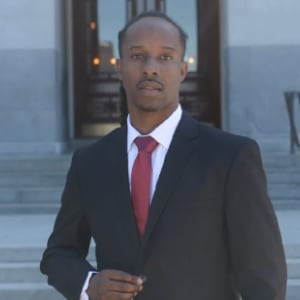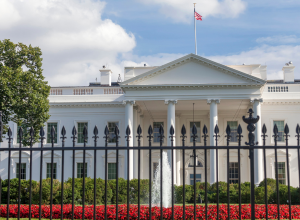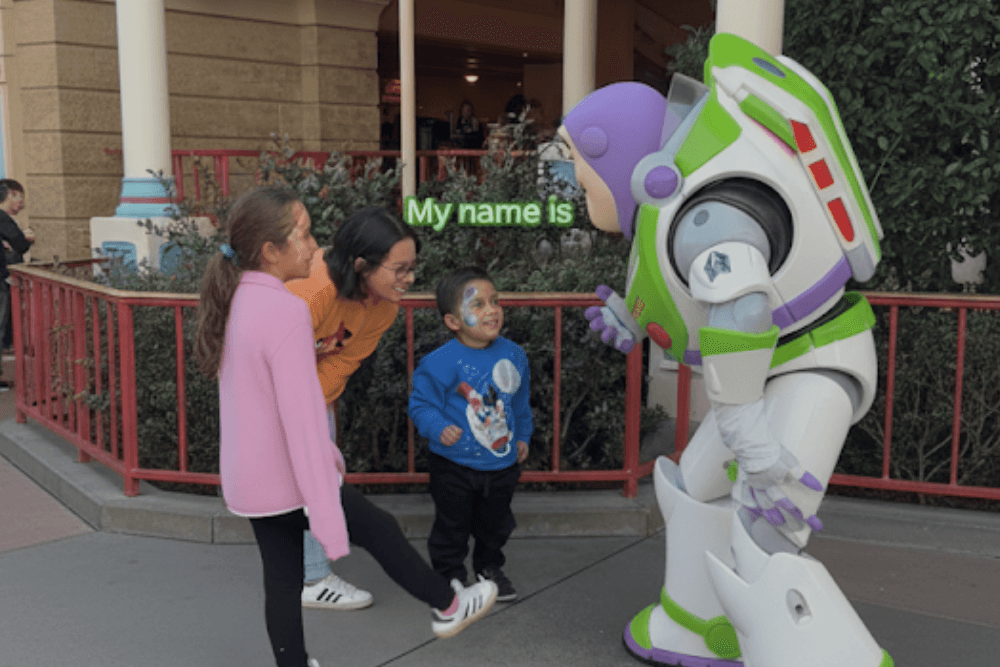This week, the conversation across the Deaf and hard-of-hearing communities was dominated by a powerful and recurring theme: the urgent need for authentic, community-led solutions in a world of rapid change. From the courtroom to the retail store, and from Parliament to the frontiers of AI development, advocates are pushing back against one-size-fits-all approaches and demanding a central role in shaping their own access.
The stories below capture a community at a pivotal moment, fighting for accountability, defining the ethics of new technology, and ensuring that progress serves people, not just systems.
Deaf Scholar Urges Caution on AI Sign Language Tech
As AI-driven sign language tools become more common, a prominent Deaf academic is calling for a community-led strategy to ensure these technologies do more good than harm. In a widely circulated blog post, Dr. Maartje De Meulder warns against the uncritical adoption of AI that risks devaluing the cultural richness of natural sign languages. She argues that current AI cannot replicate the complex grammar and nuance essential for true communication, raising concerns about the spread of inaccurate translations and the potential erosion of work for highly skilled human interpreters. Her call to action is for the community to lead the conversation, establishing ethical guidelines that prioritize quality and cultural preservation over automated convenience.
Speaking at the British Deaf Association’s conference, Dr. De Meulder urged the community to be “assertive,” emphasizing that the choice between a human interpreter and a responsible AI alternative must remain paramount. She stressed that accountability is key, calling for government funding to be tied to the requirement that these technology projects are Deaf-led, with Deaf people on research teams and advisory boards. This addresses the growing concern that non-signing developers are creating misguided tools while profiting from the community’s linguistic and cultural capital. Dr. De Meulder warns against sign language becoming mere “data for the machines,” advocating for a future where AI enhances access, not replaces it.
Advocates Take Fight for White House ASL Access to Court
The battle for equal access to government information escalated this week as a federal judge heard arguments in at White House press briefings. The National Association of the Deaf (NAD) filed the suit after the administration discontinued the practice, arguing that captions and transcripts alone are insufficient. Advocates powerfully made the case that for many Deaf Americans whose primary language is ASL, reading English captions is not functionally equivalent to receiving information in their native language.
The outcome could set a critical precedent for what “effective communication” means for all federal government activities.
Spotlight on CART
In a powerful reminder that accessibility is not a monolith, a personal essay by Tremmel Watson, an advocate with Disability Rights California, highlights the essential role of Communication Access Realtime Translation (CART) for Hard-of-Hearing and late-deafened individuals.

Watson, who identifies as a late-deafened adult after losing his hearing gradually following a childhood accident, shares a journey that underscores the profound difference between merely being present and truly participating. His story serves as a crucial counterpoint to the push for purely automated solutions, championing the need for high-quality, human-powered services. His path to advocacy was forged through immense personal challenges, including becoming completely deaf and isolated while incarcerated. Raised in the hearing world, he initially relied on lip-reading to fill in the gaps, a constant struggle that left him feeling left out of conversations. It was only later that he discovered his right to request CART, a realization that sparked his mission. “You can’t fight for an accommodation if you don’t know it exists,” Watson writes, pointing to a critical awareness gap that affects thousands.
The core of his message is the stark difference between human-operated CART and Automated Speech Recognition (ASR). While proficient in ASL, Watson explains that captions are his most effective form of access. He describes the difference between the two technologies as “night and day”. While ASR has improved, he notes it often lacks the ability to accurately identify different speakers or convey crucial environmental cues, like a fire alarm or a whispered comment—details a human captioner captures seamlessly. This distinction is not just a matter of convenience; in high-stakes legal or medical settings, it can be the difference between clarity and confusion.
This lived experience is now the driving force behind his professional work. Watson has channeled his journey into national advocacy, serving as a subject matter expert for the FCC’s Caption Quality Metrics Working Group and even acting as an expert witness in a federal case, where he argued that CART was the only effective accommodation for deaf individuals in correctional facilities. His story is a testament to the fact that communication access is a fundamental right, and that for many, the nuance, accuracy, and context provided by a human professional remains the gold standard.
You can follow Tremmel’s story on Instagram.
Canadian Minister Commits to Deaf Culture Training After Backlash
Public accountability was on full display in Manitoba, Canada, where the provincial accessibility minister for her team. The move followed a swift public outcry after the minister made disparaging remarks about an ASL interpreter.
In a response hailed as a victory for advocacy, she issued a formal apology and pledged to work with Deaf consultants to implement systemic changes, including amending accessibility legislation and hiring more interpreters across government. The outcome is a powerful case study in how community action can turn a moment of ignorance into a catalyst for meaningful institutional change.
Kenyan AI Startup Sparks Hope and Debate on Global Accessibility
A technology startup in Nairobi is making international headlines with an AI-powered tool designed to provide real-time Kenyan Sign Language (KSL) translation. The project represents an exciting example of homegrown African innovation aimed at closing critical communication gaps in healthcare and education. However, it also arrives squarely in the middle of the global debate on AI ethics. The project’s success will ultimately depend on its technology and its ability to collaborate authentically with the Deaf Kenyans it aims to serve, ensuring the tool is developed with, not just for, the community. Check out a 2 minute video below.
Canadian Interpreter Strike Ends, But Community Trust Remains Fractured
After a grueling two-month strike, interpreters and other workers at Canadian Hearing Services (CHS) have ratified a new contract. While the end of the labor dispute is a relief, the service disruptions have left deep scars and eroded trust between the Deaf community and a key service provider. Stories of individuals left without interpreters in medical emergencies highlighted the life-and-death stakes of the situation.
Now, advocates say the real work begins: rebuilding the fractured relationship and demanding greater accountability to ensure such a critical failure of the accessibility infrastructure never happens again.
This Week in Deaf News, from AI Ethics to Policy Battles
This week’s stories paint a clear picture of a community actively defining its own terms for progress. The intense debate over AI is not a rejection of technology. It is a powerful stand for ethical innovation that respects the integrity of language and culture. At the same time, strong advocacy is successfully holding institutions accountable, proving that human-centered services are the bedrock of meaningful access. These are not isolated trends. They are converging to forge a new standard where progress is measured not by speed or automation, but by authenticity and equity. The future will be built through genuine partnership, guided by cultural respect, and defined by an unwavering commitment to quality communication for all.









